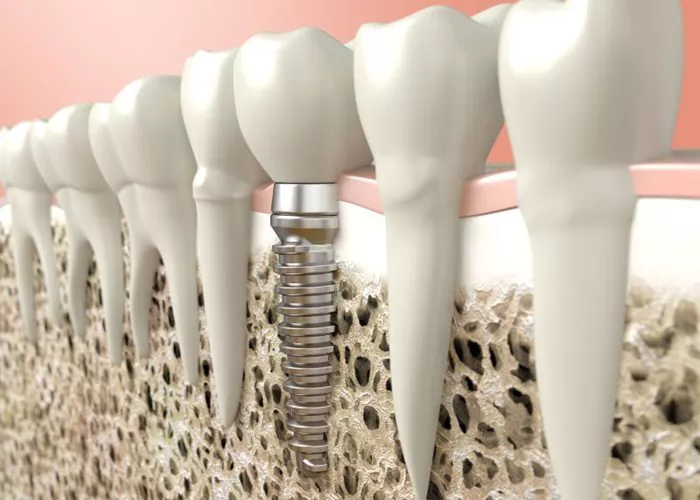Dental implants are a popular and effective method for replacing missing teeth. They provide a stable and long-lasting solution that can significantly improve a person’s oral health and smile. However, like any medical procedure, dental implants can sometimes lead to complications, including toxicity. While dental implant toxicity is not a common occurrence, it is important to be aware of the potential symptoms so that prompt diagnosis and treatment can be initiated.
Understanding Dental Implant Toxicity
Dental implant toxicity refers to adverse reactions or complications that arise due to the presence of harmful substances or materials in or around the dental implants. These substances can include metals, chemicals, or other toxins that may be present in the implant material, surrounding tissues, or even the patient’s body. While modern dental implants are made from safe and biocompatible materials, there are still rare instances where toxicity can occur.
Common Symptoms of Dental Implant Toxicity
Pain and Discomfort
One of the most common symptoms of dental implant toxicity is pain and discomfort in the area of the implant. This pain may be mild to severe and can be constant or intermittent. It may also radiate to other parts of the face, head, or neck.
Swelling and Inflammation
Swelling and inflammation around the implant site are also common indicators of toxicity. This can be accompanied by redness, warmth, and tenderness to the touch. Swelling may be localized to the implant site or may extend to surrounding tissues.
Infection
Dental implant toxicity can also lead to infection. Symptoms of infection may include fever, pus drainage, and bad breath. Infections can be serious and may require antibiotic treatment to resolve.
Allergic Reactions
Some patients may experience allergic reactions to the materials used in dental implants. Symptoms of an allergic reaction can include itching, rash, hives, and swelling of the face, lips, or tongue. In severe cases, anaphylactic shock may occur, which is a life-threatening condition that requires immediate medical attention.
Metal Sensitivity
Dental implants often contain metals such as titanium, zirconia, or cobalt-chromium. Some patients may be sensitive to these metals, leading to symptoms such as tingling, burning, or numbness in the mouth. Metal sensitivity can also cause taste disturbances and a metallic taste in the mouth.
Nerve Damage
Dental implant toxicity can sometimes cause nerve damage, leading to symptoms such as numbness, tingling, or pain in the area around the implant. Nerve damage may be temporary or permanent and can affect the patient’s ability to eat, speak, and feel sensations in the affected area.
Bone Loss
Long-term exposure to toxic substances around dental implants can lead to bone loss. This occurs when the bone tissue around the implant becomes inflamed and damaged, causing it to break down and be absorbed by the body. Bone loss can weaken the jawbone and may require additional surgical procedures to repair.
Systemic Symptoms
In rare cases, dental implant toxicity can cause systemic symptoms, which affect the entire body. These symptoms may include fatigue, weakness, dizziness, headaches, and digestive issues such as nausea, vomiting, and diarrhea. Systemic symptoms can be difficult to diagnose and may require a thorough medical evaluation to determine the underlying cause.
Causes of Dental Implant Toxicity
There are several potential causes of dental implant toxicity, including:
Allergic Reactions
As mentioned earlier, some patients may be allergic to the materials used in dental implants. This can cause an immune response that leads to inflammation and tissue damage.
Metal Sensitivity
Sensitivity to metals such as titanium or cobalt-chromium can cause symptoms such as tingling, burning, or numbness in the mouth.
Poor-Quality Implants
Implants made from low-quality materials or those that are not properly manufactured can contain harmful substances that can cause toxicity.
Infection
Infections around dental implants can lead to the release of toxins and inflammatory cytokines, which can cause tissue damage and systemic symptoms.
Inadequate Healing
If the surgical site does not heal properly, it can become infected or inflamed, leading to toxicity.
Biocompatibility Issues
While most dental implants are made from biocompatible materials, some patients may have unique biocompatibility issues that cause an adverse reaction to the implant.
Diagnosis and Treatment of Dental Implant Toxicity
Diagnosing dental implant toxicity can be challenging because the symptoms can be similar to other dental or medical conditions. A thorough medical and dental history, along with a physical examination and imaging studies, can help to identify the underlying cause.
Treatment for dental implant toxicity depends on the cause and severity of the symptoms. In some cases, removing the implant may be necessary to resolve the issue. Other treatments may include antibiotics, anti-inflammatory medications, or allergy testing and management.
Prevention of Dental Implant Toxicity
To prevent dental implant toxicity, it is important to choose a qualified and experienced dental implant surgeon who uses high-quality implants and follows best practices for surgical techniques and post-operative care. Patients should also be aware of their own medical and dental histories, including any allergies or sensitivities, and discuss these with their surgeon before undergoing implant surgery.
Conclusion
In conclusion, dental implant toxicity is a rare but potential complication of dental implant surgery. By understanding the symptoms, causes, and treatments of dental implant toxicity, patients can take steps to prevent it and seek prompt medical attention if symptoms occur. With proper diagnosis and treatment, most patients can enjoy the benefits of dental implants without experiencing any adverse effects.
Related topics:

